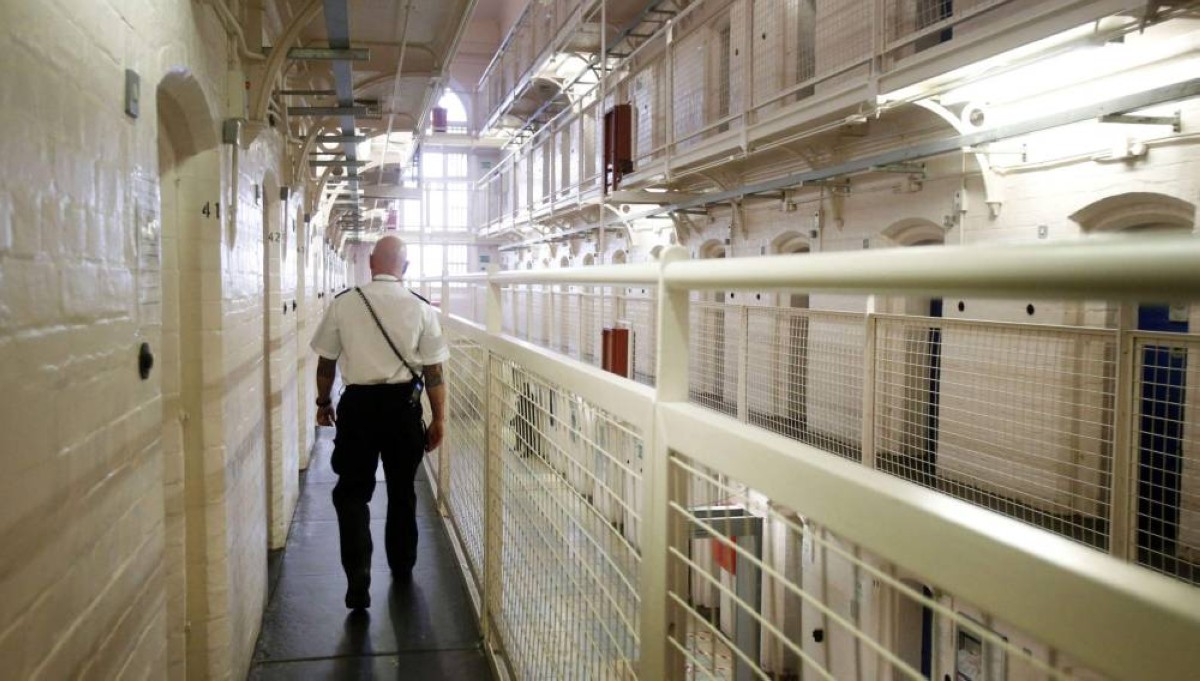The Office of Official Statistics in Britain revealed an increase in average salaries within various work sectors in Britain during September 2024, but the recent rise did not succeed in reducing the impact of the cost of living crisis that continues to weigh heavily on many families.
According to data published by the British Statistics Office, the general average of salaries in Britain increased by 5.1 percent (excluding bonuses) in the period between May and July during 2024.
Salary rates rose during the same period by 4 percent when bonuses were taken into account, while the inflation rate in Britain reached 2 percent, meaning that the final result of the salary increase reached 3.1 percent.
While reports have shown that people with manual professions in Britain earn higher wages than those with university degrees and those with higher qualifications, this coincides with an increase in the level of wages in the country, but with an increase in the unemployment rate at the same time. However, prisoners in the United Kingdom receive much higher wages than officers who They guard them, as well as teachers, chemists, psychotherapists, and midwives, according to a report published by the British newspaper The Telegraph.
Prisoners in some open, low-security prisons are allowed out to work, as long as they return to their prison cells by the end of the day.
The move is part of a concerted effort to rehabilitate prisoners and prepare them for life back in society, but the difference in pay between prisoners and those in civil society has raised questions about income disparity in the UK.
The highest paid prisoner in the UK earned a net pay of $46,005 last year, meaning his total salary was around $57,640.
Data released by the Ministry of the Interior showed that nine other prisoners earned net earnings of more than $28,694, meaning that the average working prisoner earns just under $25,061 per year, while the average salary of a prison guard is $35,085, while new recruits earn about $30,073 per year. .
According to the Justice Department, there were two other high-wage inmates who made more than $37,591 after taxes last year, and seven others who placed between $28,694 and $37,591 in private bank accounts.
Although prisoners work a variety of jobs, high-paid individuals participate in one of the most lucrative jobs – truck driving.
The newspaper quoted a Prison Service spokesman as saying, “Some violators, at the end of their sentence, receive temporary release. This means that they spend some of their day in the community, often working, before returning to prison.”
“If they are working, their earnings are subject to tax, court fines and fees of up to 40 per cent, which funds a victims’ charity,” he added.
Despite the discounts, prisoners were ahead of midwives, whose average net pay was $45,889, while biochemists earned $45,844, psychotherapists $45,864, and chartered surveyors $43,908.
**What policy changes could be implemented to address wage disparities and ensure that salary growth benefits both highly skilled professionals and individuals re-entering society after incarceration?**
## World Today News: In-Depth Interview – Salaries in Britain: Increasing Wages, Rising Concerns
**Host:** Welcome to World Today News in-depth. Today, we’re delving into the recent report released by the Office of Official Statistics in Britain regarding the upward trend in average salaries across various sectors. To unpack this intricate topic, we’re joined by two distinguished guests: Dr. Emily Carter, renowned economist specializing in labor market dynamics, and Mr. John Smith, a leading voice advocating for prison reform and rehabilitation.
**Section 1: Salary Growth Amidst the Cost of Living Crisis**
**Host:** Dr. Carter, the report indicates a promising 5.1% rise in average salaries excluding bonuses, yet the cost of living crisis persists. Can you shed light on this apparent paradox? What are the implications for working families in Britain?
**Dr. Carter:**
**(Responds, discussing factors like inflation, housing costs, energy prices, potential impact on spending habits and debt, etc.)**
**Host:** Mr. Smith, how do you see these salary increases impacting those released from prison who are re-entering the workforce?
**Mr. Smith:**
**(Responds, discussing potential benefits and challenges, access to affordable housing and support systems, and comparison to pre-incarceration earning potential.)**
**Section 2: Wage Disparities and Unexpected Trends**
**Host:** A striking finding in the report is the higher earnings of manual laborers compared to those with university degrees. Dr. Carter, what factors could be contributing to this trend, and what are the long-term implications for the British workforce?
**Dr. Carter:**
**(Responds, discussing factors like skills shortage in certain trades, growing demand for manual labor, potential undervaluation of higher education, and impact on social mobility.)**
**Host:** Mr. Smith, the report also highlighted the surprisingly high wages earned by prisoners compared to some professionals like teachers or midwives. What are your thoughts on this, and how does this factor into the larger debate on prison reform and rehabilitation?
**Mr. Smith:**
**( Responds, discussing potential benefits of work programs for inmates, the need for fair compensation alongside oversight and ethical considerations, and the broader goal of societal reintegration.)**
**Section 3: Looking Ahead:
**Host:** The data paints a complex picture of the British labor market. Dr. Carter, what trends do you foresee in the coming months, considering factors like inflation, interest rate hikes, and potential economic recession?
**Dr. Carter:**
**(Responds, offering insights into potential wage stagnation, increased job insecurity, and the government’s role in mitigating economic hardship.)**
**Host:** Mr. Smith, what steps can be taken to ensure that salary growth benefits all sectors of society, particularly those facing systemic disadvantages, including those transitioning back into society after incarceration?
**Mr. Smith:**
**(Responds, advocating for policies promoting fair wages, accessible education and training, affordable housing, and comprehensive re-entry support programs.)**
**Host:** Thank you both for this insightful discussion. It’s clear that navigating the complexities of the British labor market requires a multi-faceted approach, focusing on both economic growth and social equity. We’ll continue following these developments closely.
**(Closing remarks, potentially inviting viewers to share their thoughts and opinions on the topic.)**


